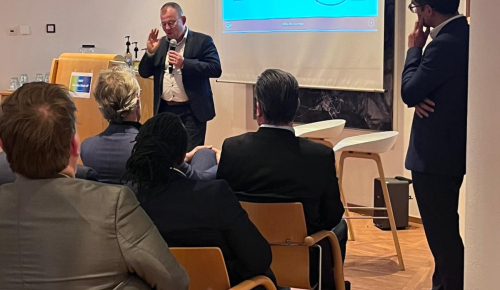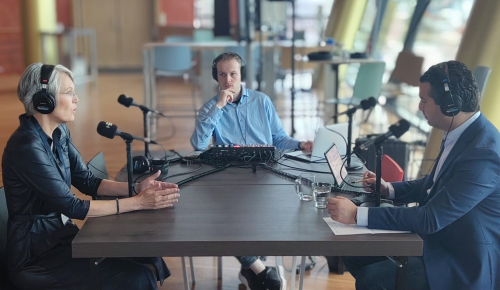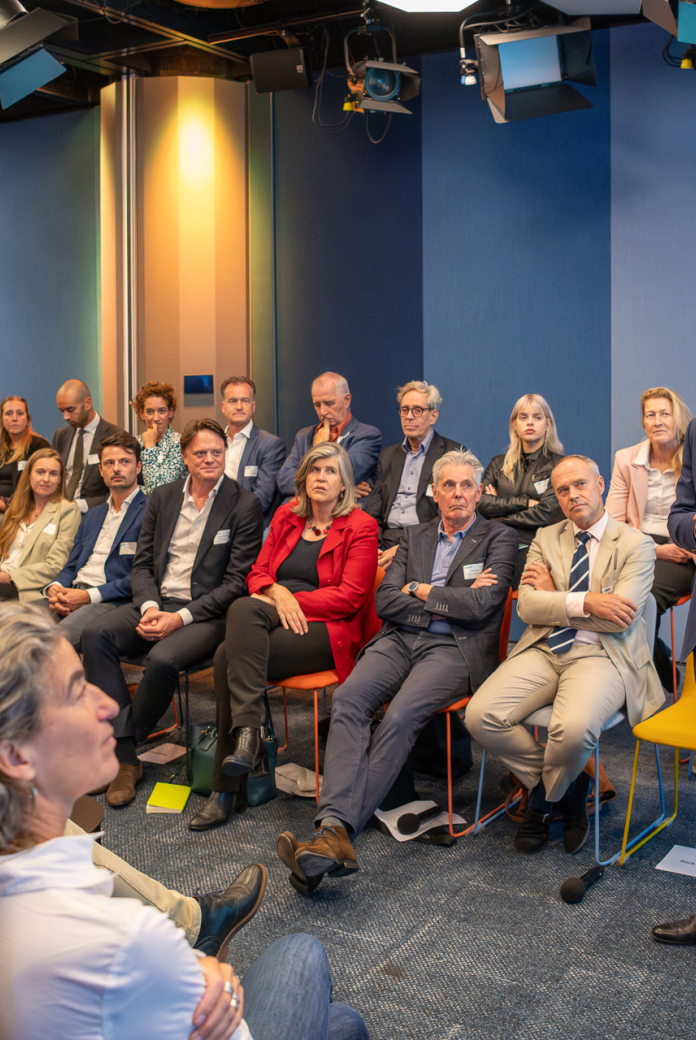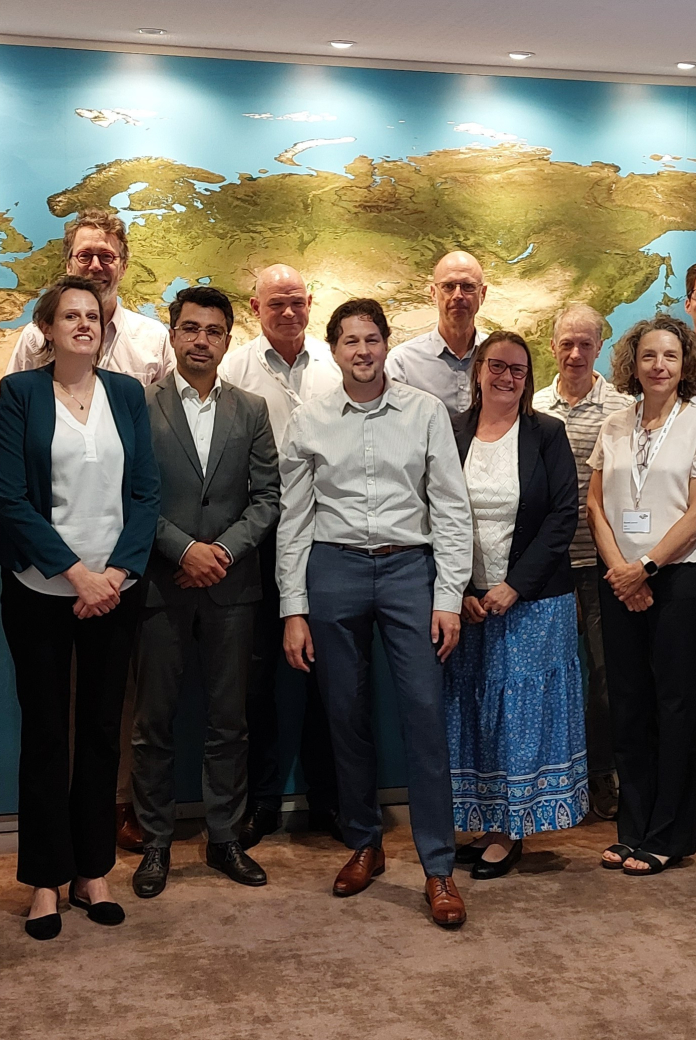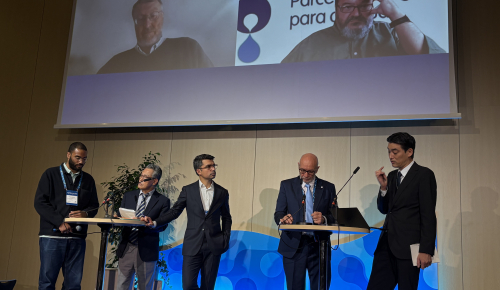News
22 June 2022Blended finance for WASH


Aqua for All, IRC, VEI, World Waternet, Waste, and Climate Fund Managers are Dutch funded organisations that use blended finance to attract private finance and achieve Sustainable Development Goal 6. Recently, they gathered at the International Water House in The Hague for a session on blended finance hosted by the Netherlands Water Partnership and IRC and chaired by Aqua for All.
Achieving Sustainable Development Goal 6 (SDG 6) by 2030 requires a sense of urgency to find opportunities that enable capital markets to start financing the water, sanitation and hygiene sector (WASH). Governments, civil society, businesses, NGOs and knowledge institutions acknowledge the importance of achieving the Sustainable Development Goals. They also recognise that public and additional concessional funds are insufficient to achieve SDG 6. Bridges between the WASH and the private sectors therefore need to be built urgently if we are to catalyse private sector expertise, innovation capacity and financial leverage.
It is also critical that WASH succeeds in having an enabling environment in place that allows Water and Sanitation Providers (WSPs) to become creditworthy and able to successfully develop commercially viable business cases that can be funded by innovative blended financial instruments and, ultimately, through commercial financing.
Clean water is a basic human need, and one that should be easily accessible to all. There is sufficient fresh water on the planet to achieve this. However, due to poor infrastructure, investment and planning, every year millions of people — most of them children — die from diseases associated with inadequate water supply, sanitation and hygiene.
UN on SDG 6
Attracting private capital
Blended finance is the use of development finance or philanthropic funds to attract private capital. As NWP Finance Manager, Rick Elmendorp, says, “we are running out of time to reach SDG 6. As public and additional concessional funds are insufficient to achieve this goal, clever solutions are needed to attract private capital.” With this in mind, the Netherlands Water Partnership (NWP) and IRC recently hosted a session on the topic at the International Water House in The Hague, the headquarters of both organisations. Aqua for All, IRC, VEI, World Waternet, Waste, and Climate Fund Managers – all members of NWP – attended the session.
Together, these organisations have a vast amount of knowledge, expertise and a large network. These can be used to strengthen the enabling environment, support water and sanitation companies and organisations, and co-finance the sector through funds or otherwise. By collaborating, connecting expertise and using blended finance models they aim to attract commercial financers as well as development finance institutions to help reach SDG 6.
The idea of hosting this session was conceived as a means to connect parties that could increase the efficiency and impact of various Dutch funded organisations as well as connect them to relevant stakeholders such as the Dutch Directorate General for International Cooperation and the Dutch Inclusive Green Growth Department. As part of the session, participants reviewed some successful examples of blended finance solutions, including the following.
- Climate Fund Managers’ Climate Investor Two, which offers an integrated funding solution, comprising a Development Fund, Construction Equity Fund and a Climate Credit Fund.
- Aqua for All’s de-risking solutions to unlock private capital.
- KIFFWA, the Kenya Innovative Finance Facility for Water, a project development facility that provides early-stage funding and expertise for water initiatives in Kenya.
“It was great to find a time with NWP members to discuss how our approaches can be part of the pieces of a greater puzzle,” says Elmendorp.
Top 3 shared ideas
- It is crucial that developing countries’ governments create an enabling environment that allows institutions, companies and service providers to operate in a business-like manner. This requires transparent and adequate regulation, the professionalisation and commercialisation of the sector, and the private sector’s input and funding.
- A knock-on effect is that donors, international and Dutch funded organisations, need to change their approach. Rather than just granting subsidies or providing sovereign loans, they should also enable the sector to become more professional and commercial, and able to raise private capital.
- These Dutch funded organisations already have a vast amount of knowledge, expertise and a large network. These could be used to strengthen the enabling environment, support water and sanitation companies and organisations, and co-finance the sector through funds or otherwise. The next step is connecting this expertise and using blended finance models to attract commercial financers.
Featured NWP members: Aqua For All, IRC, VEI B.V., Waternet, Waste, Climate Fund Managers


